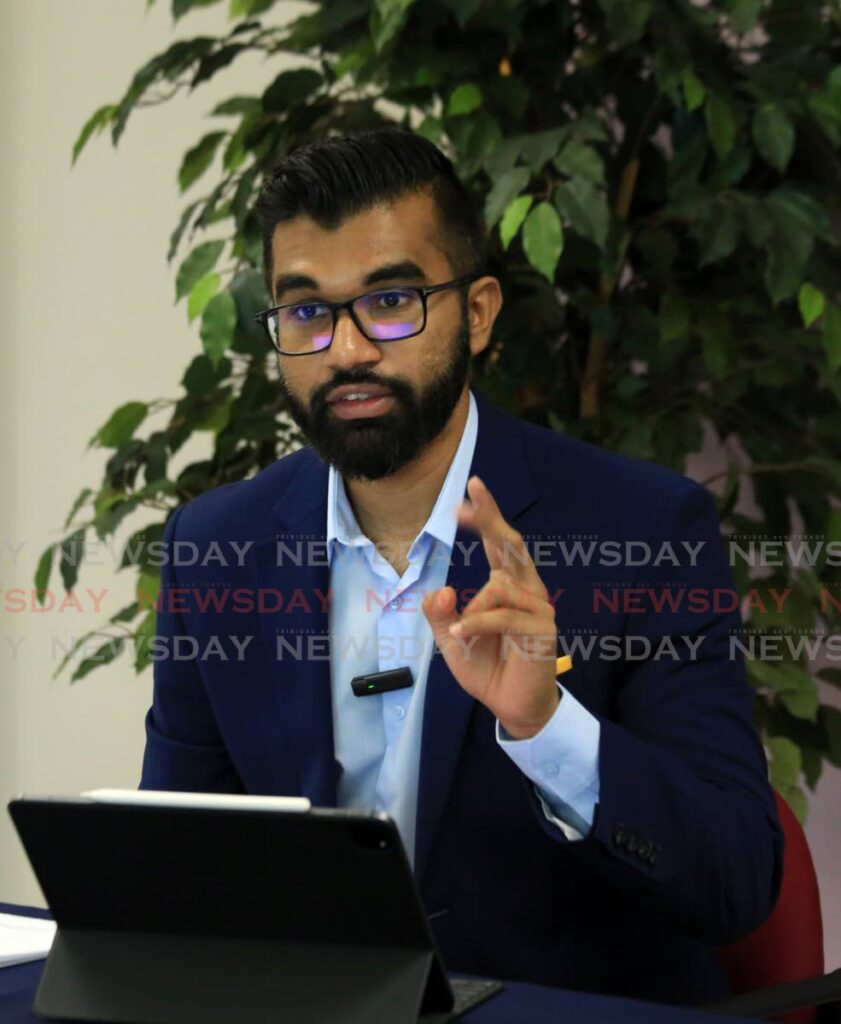Hosein: Police testing bill too vague

SADDAM HOSEIN, MP for Barataria/San Juan, complained on Wednesday that the Miscellaneous Provisions (Testing and Identification) Bill 2022 was too vague in several aspects.
Hosein was speaking in the House of Representatives.
He said since Minister of National Security Fitzgerald Hinds first piloted the bill last February, he had said nothing new in his contribution to reintroduce it minutes before.
The bill seeks to empower heads of the protective services and certain public agencies to require certain officers in certain circumstances to be subjected to drug-testing, polygraph-testing and/or the provision of their biometric data.
Hosein said the bill did not exactly define who it would monitor, what "reasonable suspicion" could trigger its application, and what sanctions might apply to protective/public officers refusing to comply with it.
Reflecting on the bill's being presented previously but then languishing, Hosein said he did not understand the Government's current urgent desire to deal with it.
Saying the Constitution protects an individual against self-incrimination, he said even if a bill is passed by a special majority in Parliament – such as required by this bill – that vote does not insulate the legislation from subsequent challenge in the courts.
Hosein also advised that legislation must be proportionate to its aims, saying, "You can't take a sledgehammer to kill an ant."
Onwho the bill applied to, Hosein raised the question of whether such an officer was defined by the bill or by the various acts it was amending (such as the Prison Service Act defining a "prison officer"), and the question of including in this definition a consultant or an officer on contract.
He raised the issue of whether the bill would include special reserve police (SRPs) and municipal police officers, if they were in the relevant sensitive roles.
Given that the bill proposes to include certain legal officers in the public service, he asked if the Government had consulted the Law Association (LATT).
He asked what was meant by the bill including officers who were "in proximity" to someone charged under the Dangerous Drugs Act, and whether this might include a relative or someone an officer had sat next to.
Hosein quipped that if "persons sitting across from me" were ever charged under the Dangerous Drugs Act, he did not want to be sitting close to them.
On a provision for the Registrar General to determine as to his/her "reasonable suspicion" that an officer should be subject to testing, Hosein said the bill imposed on a civilian head of department an obligation to assess suspicion in a criminal case.
He then related a case in which a Financial Intelligence Unit (FIU) investigation had not been triggered by any suspicious transaction report from any bank to the FIU.
Hinds rose to say that case was under appeal and therefore sub judice.
Hosein complained the bill did not define a drug test or polygraph test nor say which biometric data must be submitted, such as fingerprints or retinal scans.
"What drugs will they look for?"
Hosein said the UK's Metropolitan Police also test their officers for alcohol.
Hosein said the bill failed to say what would be done with the results of any such tests.
"It's not admissible in court. If it is to be used for prosecution, there must be amendments to the Evidence Act."
He asked if the police could not prosecute a case called 41 times in court – as cited in the Police Management Audit Report 2017 – or if the fire service could not properly buy 24 wooden ladders as recently reported, how any such agencies would handle sensitive biometric and polygraph equipment.
Likewise, he said when the police bought body cameras they forgot also to buy chargers for them.
Hosein said polygraph tests were not 100 per cent reliable and could be affected by someone's suffering anxiety or nervousness or being ill. He also scoffed that these tests were asking the subject to read a booklet of questions and then declare "yes" or "no" to the polygraph machine, unlike the serial interrogations seen in TV shows.


Comments
"Hosein: Police testing bill too vague"